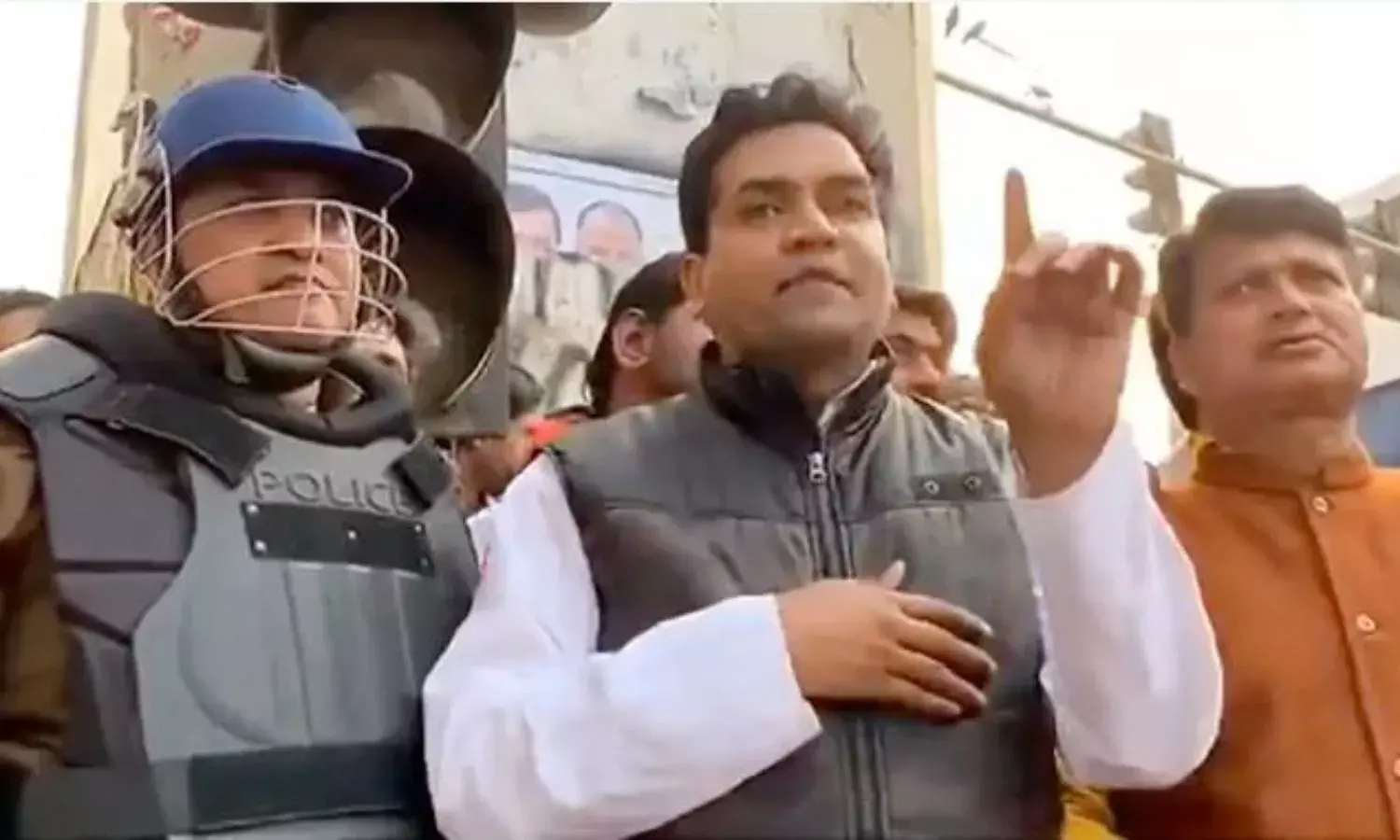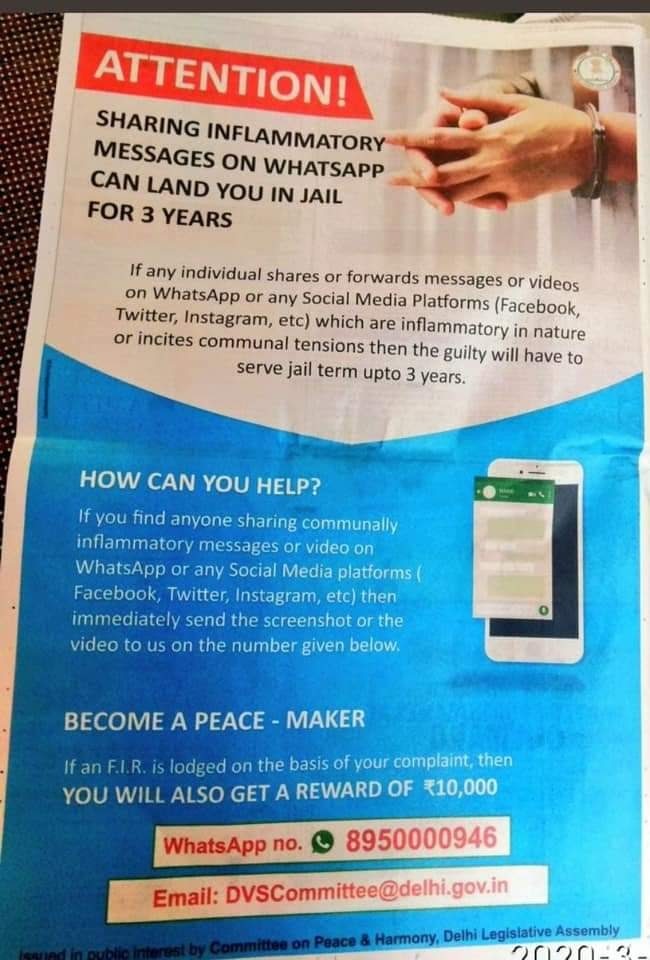Reward of Public Money If Delhi Police Registers Your Hate Speech Complaint
Delhi Vidhan Sabha committee of AAP MLAs announces move

NEW DELHI: Recently reported Delhi Police call log records show that during the targeted violence which proceeded unchecked for days barely an hour’s drive from Parliament, police stations in the national capital’s targeted areas received 700 distress calls on Sunday February 23 – 3,500 calls on Monday – 7,500 on Tuesday – and 1,500 on Wednesday February 26.
Sporadic incidents of violence were registered over the next two days. According to Newsclick, which accessed the police call logs, the “Brief of Action Taken” column is everywhere left blank or still says “pending”. These include hundreds of distress calls about rioters entering and burning down schools, shops and homes.
Days after the attacks, the Delhi Legislative Assembly constituted a Peace and Harmony Committee under the leadership of Saurabh Bharadwaj, AAP MLA from Greater Kailash.
In a widely reported step on March 3 the committee comprising nine AAP MLAs announced a WhatsApp number and email ID to which people could send in complaints about “inflammatory content” on social media that may cause “communal disharmony”.
The committee further announced a reward of ₹10,000 of public money to anyone whose complaint about “hate messages” is registered in an FIR by the Delhi Police.
Newspaper ads since published warn: “Sharing inflammatory messages on WhatsApp can land you in jail for 3 years… If you find anyone sharing communally inflammatory messages or video on WhatsApp or any Social Media platforms… then immediately send the screenshot or the video to us… Become a peace maker… If an FIR is registered on the basis of your complaint, then YOU WILL ALSO GET A REWARD”.

Using public money to reward complaints recognised by the Delhi Police? Supreme Court advocate and data privacy expert Karnika Seth suggests some better ways to check inflammatory content:
“There are several sites like fact-checkers where users can check if the news or content is fake. Due diligence should also be followed by social media platforms to block hate speech content. Filters should be put; PhotoDNA technology can be used to block such content,” Seth told The Citizen, emphasising that social media platforms and users both need to act responsibly.
Shakuntala Banaji, associate professor of media and communications at the London School of Economics, recently co-authored a study on social media fake news and hate speech in India. As we reported, the study found through extensive interviews that India’s WhatsApp vigilantes spread such content mostly knowingly, for ideological reasons, not from digital illiteracy.
These social media users supplement an unethical mainstream media environment heavily biased towards the state, the researchers emphasised, observing that even on unencrypted or public platforms like Facebook, “We have seen no evidence that law enforcement in India has prosecuted those who are originators and/or reported as originators of hateful and harmful materials linked to anti-Muslim, anti-Dalit, or anti-Dissident content.
“Rather we see evidence of the state and allied authorities selectively taking action against groups or individuals whose ideology does not fit with their own.”
We asked Banaji what the Peace and Harmony Committee’s plea for informants and rewards might mean.
“All actions taken by the Delhi Government to curb violent hate speech are welcome, as long as they are intended to prevent further pogroms against Delhi’s vulnerable Muslim communities.
“If, however, these new measures are actually going to be deployed against the few brave and honourable citizens and journalists who are reporting on Hindutva mob violence and government bias or inaction, then they are a cynical and deplorable tool of authoritarianism.
“Only the immediate actions of the courts and the Delhi government will tell which of these pathways is being taken,” Banaji told The Citizen.



